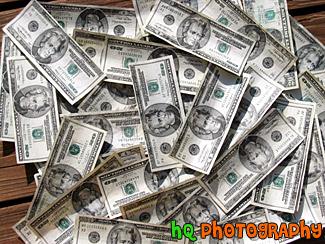
However, upon closer inspection, they are empty – and waiting for you to stash your cash inside. These look like everyday items that you store on your shelf. By doing a quick search on the internet, you will find a multitude of decoys or diversion safes. Recommendations for safe-storing and hiding of cash are plentiful. You will want to weigh the risk of storing cash in your home and having the convenience of having it close in an emergency – to losing the cash in a fire or theft. government by $250,000 per person, per bank (“Understanding Deposit Insurance,” 2016).
Money stash full#
FDIC is backed by the full faith and credit of the U.S. The FDIC is an independent agency of the United States government that protects you against the loss of your insured deposits if your bank or credit union fails. Check with your home owners insurance to see if it insures cash money lost in a fire or burglary (Knerl, 2008).Ĭash stored at home is not protected by the FDIC. Essentially, you have created your own little bank within the walls of your home. Safeguarding your stash of cash is extremely important. Show and tell a few close relatives or trusted friends where you have hidden your cash (Knerl, 2008). Fire-proof envelopes are available for purchase online (Sisolak, 2014).Īnother concern is forgetting where you stashed the cash! Always write down your hiding places and leave the list with your estate planning materials such as your will or trust. The threat of theft or fire is always a concern. Most of us don’t feel comfortable stashing large amounts of cash in our home. No borrowing from your Emergency Cash Stash when you need some money! This cash is to be left alone so it’s available when you need it (Swanson, 2011). In case of separation during an evacuation, you will want to make sure everyone has access to some small bills and coins. If you are putting together 72 Hour Kits for each person in your family, you might want to consider putting some cash in each kit. Rolls of quarters can also prove to be valuable to have in your stash for making change and even bartering for other needed items (Swanson, 2011). If you have smaller bills, you will probably be able to pay less because the person selling the water will be more likely to have change. In an extreme emergency or disaster, you may have to pay huge amounts for even a bottle of water. Opt for lower denomination bills, especially $1 and $5. Or – use the refund to fund the entire amount of cash you feel you need. If you are expecting an income tax refund, use a portion of it to get started. Make it a line item in your monthly budget. Make establishing an Emergency Cash Stash a priority! Start small with $20 in coins and bills. Are you going to need to travel very far to get to your evacuation area? How many motel rooms might you need to rent? By counting heads ahead of time, you will be able to estimate the cost of paying for an evacuation using cash (“Families Can Prepare,” 2016). Having cash to help you through these emergencies can prove to be invaluable (“Families Can Prepare,” 2016).Īlso consider how many people you are responsible for in case of an emergency. How much cash would you need for food and gas? Would you need cash to pay for a motel if you have to evacuate to another city? What type of a family emergency would require you to dip into your tucked away dollars and quarters? Emergencies will and do happen. To estimate how much money you will need to access immediately is to imagine yourself in a real emergency. The size of your Emergency Cash Stash is dependent on you and your potential emergency. You might have to rely on cash for gas and food until a new card can be issued (Sisolak, 2014). (“Families Can Prepare,” 2016).Īnother good reason to store cash in your home is if your credit card is stolen or lost. Occasionally, in natural disasters, banks are unable to open their doors to the public due to flooding, building damage, or their security being compromised by an earthquake, etc. Just in case the electricity is knocked out for several days, your local bank and grocery store might resort to a cash-only policy because credit card machines and ATMs won’t work. A true emergency will usually require you to have money, often cash, to survive (“Financial Preparedness,” 2014). Although credit and debit cards are convenient, a back-up cash stash is necessary in an emergency.

Scenarios such as a natural disaster, a national catastrophe, or a real-life family emergency will make you appreciate those dollars you have safely tucked away. Having a stash of emergency cash in your home is an important part of emergency preparedness.


 0 kommentar(er)
0 kommentar(er)
